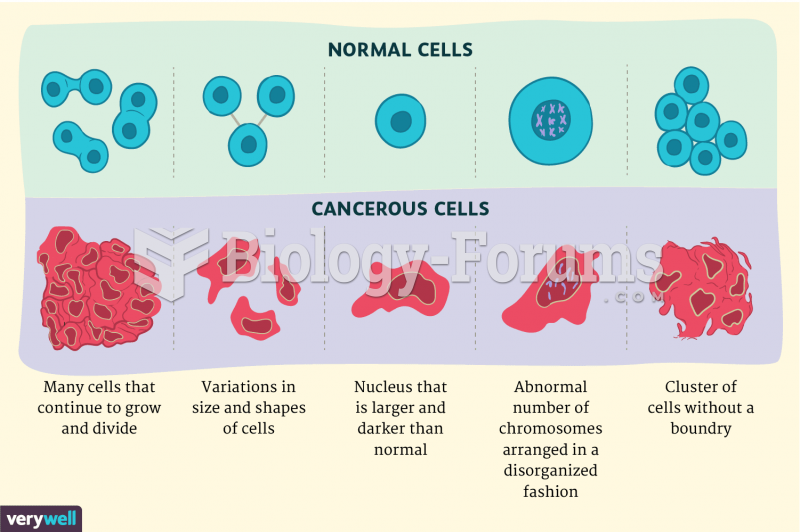Answer to Question 1
1
Rationale 1: Benign tumors grow slowly, do not metastasize, and rarely require drug treatment. Although they do not kill patients, their growth can cause pressure on nerves, blood vessels, or other tissues. When this occurs, they may be surgically removed; they do not normally grow back.
Rationale 2:No, but if surgically removed, it will grow back is incorrect because if surgically removed, they rarely grow back.
Rationale 3:Yes, this word is often used interchangeably with tumor is incorrect because neoplasm is used interchangeably with tumor.
Rationale 4:Yes, these grow rapidly and can become resistant to treatment is incorrect because this refers to a malignant tumor.
Global Rationale: Benign tumors grow slowly, do not metastasize, and rarely require drug treatment. Although they do not kill patients, their growth can cause pressure on nerves, blood vessels, or other tissues. When this occurs, they may be surgically removed; they do not normally grow back.
Answer to Question 2
1, 2, 3, 4
Rationale 1: Limiting or eliminating alcoholic beverage use decreases risk of cancer.
Rationale 2: Maintaining a healthy diet low in fat and high in fresh vegetables and fruit decreases risk of cancer.
Rationale 3: Exercising regularly and keeping body weight within optimum guidelines decreases risk of cancer.
Rationale 4: Eliminating tobacco use and exposure to secondhand tobacco smoke decreases risk of cancer.
Rationale 5: There is no indication that caffeinated beverages decrease the risk of cancer.
Global Rationale: Limiting or eliminating alcoholic beverage use decreases risk of cancer. Maintaining a healthy diet low in fat and high in fresh vegetables and fruit decreases risk of cancer. Exercising regularly and keeping body weight within optimum guidelines decreases risk of cancer. Eliminating tobacco use and exposure to secondhand tobacco smoke decreases risk of cancer. There is no indication that caffeinated beverages decrease the risk of cancer.







